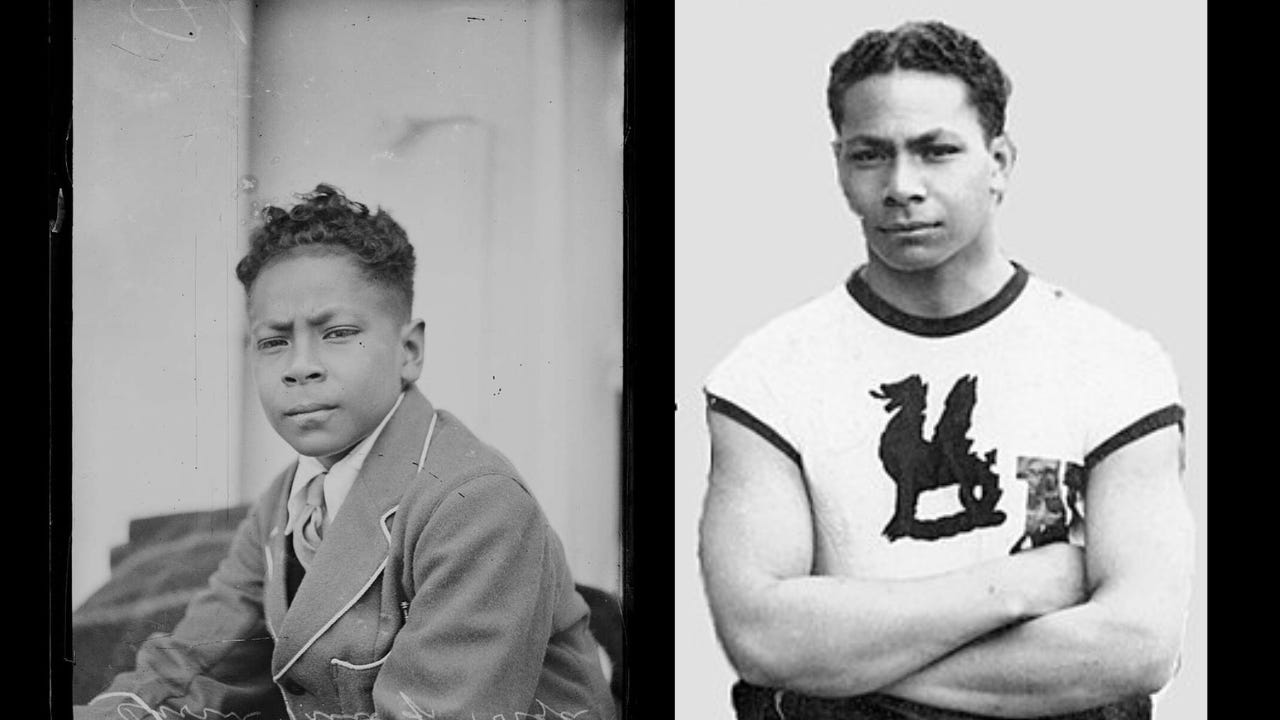The Giant Black King Who Modernized the Kingdom of Tonga
6 foot 5 and 400 plus pounds and guess what? He knew how to throw his weight around!
King Taufa’ahau Tupou IV King Taufa'ahau Tupou IV, often referred to as the Giant King due to his towering height and formidable presence, was a transformative figure in the history of Tonga. Born Siaosi Taufa'ahau Tupoulahi on July 4, 1918, he ascended to the throne in 1965, following the death of his mother, Queen Salote Tupou III. His reign, which lasted until his death in 2006, was marked by significant efforts to modernize the Kingdom of Tonga while maintaining its rich cultural heritage. Through his ambitious reforms in education, health, and infrastructure, King Taufa'ahau Tupou IV left an indelible mark on his nation.
King Taufa'ahau Tupou IV's background and upbringing played a crucial role in shaping his vision for Tonga. Educated at Newington College in Australia and later at the University of Sydney, where he studied arts and law, he became the first Tongan to graduate from university. His education imbued him with a deep appreciation for the value of learning and a commitment to expanding educational opportunities for his people. As Minister of Education from 1943 to 1950, he initiated spelling reforms to standardize the written Tongan language and established the kingdom's first teacher training college. His dedication to education continued throughout his reign as king, with the promotion of the University of the South Pacific and various initiatives to enhance schooling across Tonga.
King Taufa’ahau Tupou IV as a young boy and college studentUnder his leadership, Tonga saw significant advancements in health care and infrastructure. As Minister of Health before becoming king, Taufa'ahau focused on improving the health standards in Tonga. During his reign, he implemented public health programs, family planning initiatives, and agricultural diversification projects to ensure a healthier and more self-sufficient populace. He also oversaw the development of essential infrastructure, including the construction of the deep-water Queen Salote Wharf, the extension of the airport, and the introduction of regular international and internal flights. These efforts not only modernized Tonga's physical landscape but also improved the quality of life for its citizens.
King Taufa'ahau Tupou IV was also a keen supporter of international cooperation and development. In the 1960s, he invited volunteers from New Zealand, the United States, and Britain to help accelerate the processes of change in Tonga. These volunteers, including teachers, doctors, nurses, and agriculturalists, played a crucial role in passing on skills and knowledge that facilitated Tonga's modernization. His commitment to fostering international relationships extended to his travels, during which he promoted Tonga and attracted foreign investment and tourism, further boosting the nation's economy.
Despite his many achievements, King Taufa'ahau Tupou IV's reign was not without controversy. In his later years, scandals such as the sale of Tongan passports to foreigners and the mismanagement of public utilities led to public criticism and calls for greater government transparency. Nevertheless, his overall impact on Tonga's development remains undeniable. His efforts to modernize the nation while preserving its cultural identity have left a lasting legacy that continues to shape Tonga today.
In conclusion, King Taufa'ahau Tupou IV, was a pivotal figure in the modernization of Tonga. His dedication to education, health, infrastructure, and international cooperation transformed the kingdom and improved the lives of its people. While his reign faced challenges and controversies, his vision and achievements have cemented his place as a key architect of modern Tonga. His legacy is a testament to his commitment to progress and the well-being of his nation.
Voice of the Ancestors Book series 







